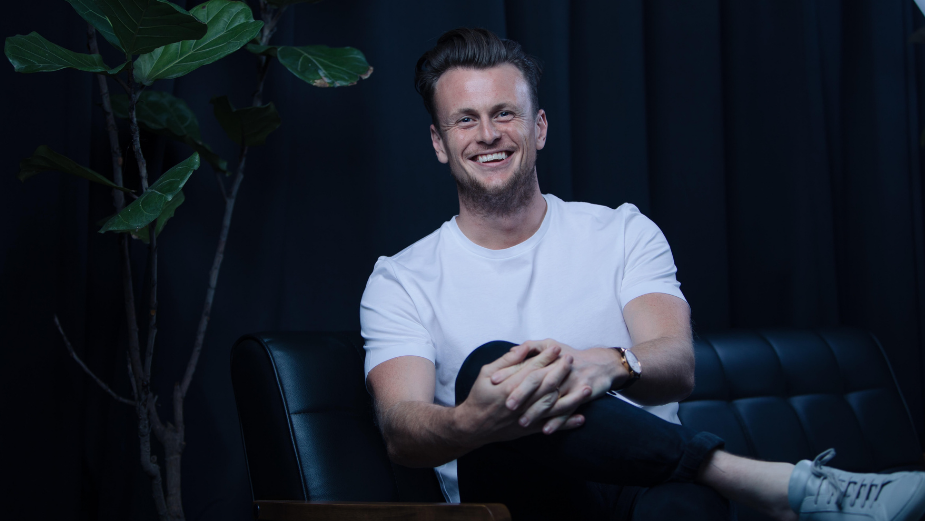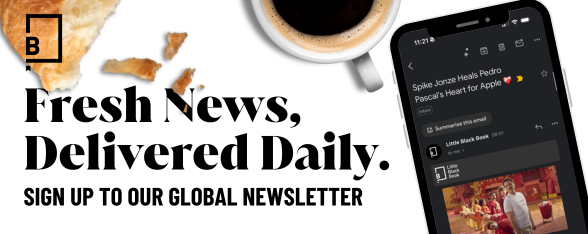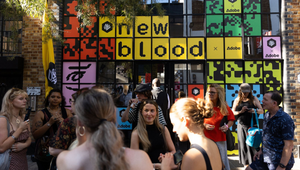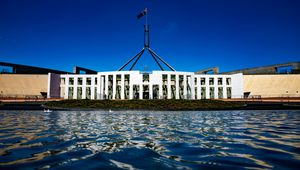
TikTok’s James Rothwell: “Now Is a Golden Era to Seek and Nurture Creatives”

2021 was a booming year for TikTok. With more hits than Google, a billion monthly users, and the launch of TikTok shopping, the brand’s head of marketing for Europe, Middle East, and South Africa, James Rothwell, certainly had a busy year too. From sponsoring the Euros and working on Ed Sheeran’s record-breaking TikTok live performance, to cementing brand partnerships with Spider Man: No Way Home and Ant & Dec, the last year saw TikTok up its brand offering, while putting entertainment at the heart of it all, and crucially leveraging outstanding talent across these different activations and campaigns.
It takes strong teams to navigate such rapid growth, which is why LBB is sitting down with James to find out how the company is nurturing talent, and where brands get it right - and wrong - when it comes to growing teams and in-housing.
The TikTok approach to talent
James tells LBB that TikTok’s ambition is to become the most ‘relatable brand on the internet’.’ We’ve seen the relatability factor of social media continue to rise, with a new generation of influencers who have turned away from the highlight reel, and instead are getting gritty with their audiences. It’s poignant then, that TikTok shares the same sentiment for its brand, and as James adds: “To achieve that, we need to move at the speed of culture.”
And culture moves fast, so what’s the approach at TikTok to achieving this goal? “Agility is first and foremost built around trust, and empowering our entire marketing organisation and team members to embrace creativity, place bets, and be able to make fast decisions,” he says.
While the wider marketing and advertising world faces a struggle with talent, both in appealing to it and retaining it, James explains how TikTok’s approach has balanced both in-house and creative partnerships to evolve quickly: “We have been quick to scale both of our in-house brand and creative studios to respond to new challenges, but we recognise we need as much fresh thinking as we can get. To that end, we’ve also built good relationships with a host of creative agencies and industry partners who can help to bring our vision to life at the speed we need to move at.”
So, where do brands go wrong when approaching in-housing? As James tells LBB, “Creative teams can only thrive if they are empowered to do the job you hired them to do. They need trust, freedom, and great briefs.” TikTok’s quick growth has necessitated internal team growth too, which James says can be a common pitfall for brands. “Hiring a couple of designers and expecting them to replace your agency of record is certainly not the way to look at it,” he says. “We have quickly grown our in-house studio from a team of 1 to a team of 20 in a year, and the impact that has had is not just incredibly exciting but also evident in our creative delivery and execution.”
And on its own agency partnerships, James says the brand ‘couldn’t move at the speed of culture’ without them - including the likes of Mother, AKQA, Dark Horses and VaynerMedia - who give TikTok ‘scale, creative inspiration, and fresh perspectives on the work.’
We asked James what skills and expertise he thinks will increasingly make up the creative teams of the future. It’s a question being continuously raised and poked by an industry where the ‘multi-hyphenate’ path is sometimes more appealing than the single job role and title.
“We encourage everyone across our marketing organisation to be as close to creative, insight, and inevitably our community, as possible,” says James. “Coupling this with our need for speed will result in more hybrid roles with enormous potential for progression - for example, producers who can take a greater role in client servicing or creative strategists who can pivot into creative development and copywriting.”
Perhaps it’s even the perfect moment for creatives: “With content being king and music underpinning this shift on TikTok, now is a golden era to seek and nurture creatives, who are pushing the boundaries for audiovisual and art direction.”
Creative on the screen, agile behind the scenes
James tells LBB how witnessing the creativity of TikTok’s one billion user-strong community sets a ‘very high bar’ for the brand’s work. Undoubtedly, a billion people present a lot of skills and creative talent, so how does that influence TikTok behind the scenes? “Early on, we decided that our marketing has to be as entertaining as our product experience itself, move at the same speed, and truly represent the diversity of our community,” says James.
It’s not something James and his team are willing to compromise on either, he says, ‘even as we grow,’ adding: “I hope that our community sees themselves in our work, as our role is to give them a megaphone to tell our story.”
TikTok’s Euros 2020 campaign is one of the stand-out examples from 2021 of the app’s brand partnerships. TikTok’s sponsorship of the tournament garnered attention, and as James tells LBB, was a real moment for realising the strength young talent has too. “We ran an internship programme to support our EURO 2020 culture engine and social publishing, and I was blown away by the passion and creativity that we saw across the applications,” he says. While high-profile talent in the industry discuss how traditional companies are struggling to attract talent, perhaps James here is highlighting where the talent is heading.
And it’s easy to see why. The launch of ‘TikTok resumes’ saw the company partner with the likes of Shopify and Chipotle to encourage its community in the workplace, putting creativity at the centre of the application experience. “TikTok Resumes are representative of the incredible generation of storytellers and creators that are entering our industry and growing up on new types of entertainment platforms,” says James.
The future of creative teams
James says that while he expects the fundamentals of creative work - art, copy, and code - to stay ‘largely the same’ in the future, increasingly these skills will need to be ‘deployed across new storytelling mediums’ in order to demand and earn attention. “Attention is the new currency in the next global economy and, at TikTok, we seek to earn it before we buy it,” he says.
And where companies are over and under-investing in skills and expertise? James says it’s a simple answer: “With attention being the next currency, this makes great content the future of marketing. To keep up with that shift, we need teams that live and breathe culture, creatives and storytellers that can shape ideas to command and earn attention, and brilliant art directors and video editors that can create marketing content that can become entertainment in its own right.”
“If you follow this logic, then 80% of your creative team should be resourced against these areas,” he adds.
For James, the future of creativity comes back to the central focus: moving at the speed of culture: “It’s about taking cues from our unpredictable and self-aware community to keep delivering on entertaining experiences - both on the app, and in the real world.”















